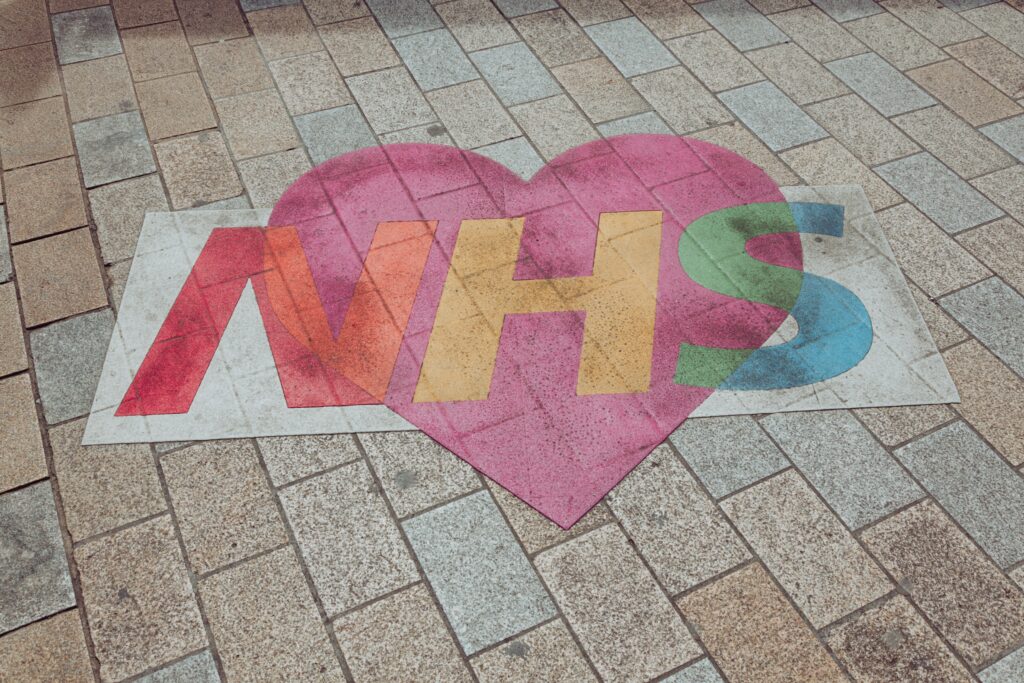Navigating the NHS
This is not a criticism of the magnificant work that the staff in the NHS have done and keep on doing. We rightly applaud the work of these wonderful people. Rather it is an observation that years of managerialism in the NHS has lost sight of the principles that the NHS is built on.
- The NHS provides a comprehensive service, available to all
- Access to NHS services is based on clinical need, not an individual’s ability to pay
- The NHS aspires to the highest standards of excellence and professionalism
- The patient will be at the heart of everything the NHS does
- The NHS works across organisational boundaries
- The NHS is committed to providing best value for taxpayers’ money
- The NHS is accountable to the public, communities and patients that it serves
My NHS story
I have two kids, with both we are trying to navigate the complexities of NHS services, specifically with the Child and Adult Mental Health Services (CAMHS) and Neurodevelopment.
My eldest child received a diagnosis for a neurodevelopment condition in 2017. Since that time reasonable adjustments has been made and he attends mainstream school.
In January 2021 a catastropic event happened. I rang the GP who suggested that my son go for a walk. But, as a result of the event he had developed symptoms that are affecting his daily function… including the ability to stand up.
I rang Neurodevelopment who referred him to Community Paediatrics. But the referral for CAMHS had to come from the School Nurse. I rang the School Nurse who did the referral for CAMHS but wanted a referral for Paediatrics (why isn’t that the same as Community Paediatrics?) but that had to come from the GP. I rang the GP to get the referral to Paediatrics.
Where is the NHS in working across organisational boundaries?
Then we waited. He wasn’t seen by a medical professional until the end of April 2021 all the while suffering increasing levels of distress from his symptoms. As a result of seeing the medical profession he has qualified for CAMHS support. Something you only get with severe, enduring and complex needs. Imagine having a severe, enduring complex fracture on your leg and only qualifying for a cast for your leg four months after the event.
In March we had been told his case was being reviewed by Paediatrics.
Following a case review it was declared that because my Child is over sixteen he doesn’t qualify for Paediatrics and he was referred to Adult General Medicine.
My Child’s birthday is in December. He is the same age he was when the event happened.
Four months of waiting to get the front of the queue following a catastrophic event and we find out we have been asked to queue in the wrong line.
How does this demonstrate excellence?
Another few weeks pass. The case is reviewed by Adult General Medicine and we are now waiting for a Neurology appointment in May.
And what does all this actually mean for treatment? Nothing. In reality he has had NO treatment since the event in January.
He is now on a waiting list to get the treatment he needs to heal and recover and we have an appointment for an as yet undiagnosed medical condition. They haven’t actually done anything to help improve his daily function.
He is in the middle of his GCSE assessments (don’t get me started on that, that’s a whole other post). He needs constant care and support.
How available is access to a comprehensive service?
I know CoVid has been happening but these structural problems around referrals are not a CoVid problem. The issues are also NOT the fault of the staff.
The issue is instead a legacy one caused by layers of management systems and processes that are not aligned to the principles and values that the organisation purports to represent.

Child Two
One thing to note is during lockdown ALL support for neurodevelopment both at home and in hospitals stopped. Literally. We received a letter awarding our family a grant for respite care the week after lockdown 1 began. We haven’t been able to access it. No reasonable adjustments were made to google classroom to make it easier to use for those with learning differences. There was no extra support for families who had the rug pulled from under their feet with individuals where routine and structure is the foundation of well being.
What accountability is there to patients and the community for eighteen months of abandonment and neglect?
My youngest child has been waiting for three years for an assessment for a neurodevelopment condition. She was supposed to have been seen in June 2020 but then, well CoVid happened. We get it – the NHS was dealing with an unprecedented situation.
In 2021 the NHS outsourced its backlog of assessments to a private company. We were invited in March to say whether we wanted to use that service or wait. We are done waiting.
How does the cost of outsourcing services rather than investing to increase provision in the NHS provide the best value for taxpayers’ money?
Four weeks after responding positively to the invite we had heard nothing. I rang both the Neurodevelopment department and the private company and discovered my child was on a “spreadsheet” but it hadn’t been uploaded and sent to the private company. She was in limbo, no longer on the NHS list, but not yet on the private companies books.
At the beginning of May we finally received the Welcome email from the private company. Except the assessment is for something different to the one we were waiting for. More phone calls and one very exasperated voice mail later and we discover that the NHS referred my child for the wrong condition. It’s now sorted but if I hadn’t spotted the mistake she would have been assessed for something else entirely and not the thing we have waited three years for. The good news is that we now have a date for her assessment.
Where is my child, the patient, in this system?
Keep it simple
My experience is not unique. The purpose of relating my experience is not simply to highlight how unnecessarily complicated navigating healthcare has become. When I was a kid you went to the GP with the health condition and everything happened from there. There were no doubt flaws but the GP could ring the clinical team and could get you on the list to be seen.
My purpose of this post, is to highlight how very easy it is for an organisation to lose sight of what value it brings.
I haven’t been able to turn up to a point of contact with an NHS service and say “help me address my childs clincal needs” and have someone help address those needs without me trying to navigate the system.

It would be like turning up at a London Underground station and, with no map and no clue how to navigate the tunnels be expected to arrive at your destination.
Worse still you don’t even know what destinations are available, let alone what route you should take. In addition, you have to organise the train driver and build the train to get you there.
How should the NHS operate to make sure the patient at the heart of everything that the NHS does?
I teach business operations, and help organisations traverse change to deliver business transformation. In my experience the problem comes when an organisation becomes so caught up in the process they lose sight of where the real value to the customer lies. Just because managerial layers make a processes appear “better” if it makes it harder from the customer to experience the value they get from your product or service it diminishes the value of the organisation in the eyes of the customer.
The NHS is AMAZING and I know how lucky we are in the UK to have free at the point of need healthcare. When we get to the other side of this process both my kids will have benefited from the service.
But as a patient trying to get help for a clinical need, understanding and accessing the service has lost all connection to what really matters:













